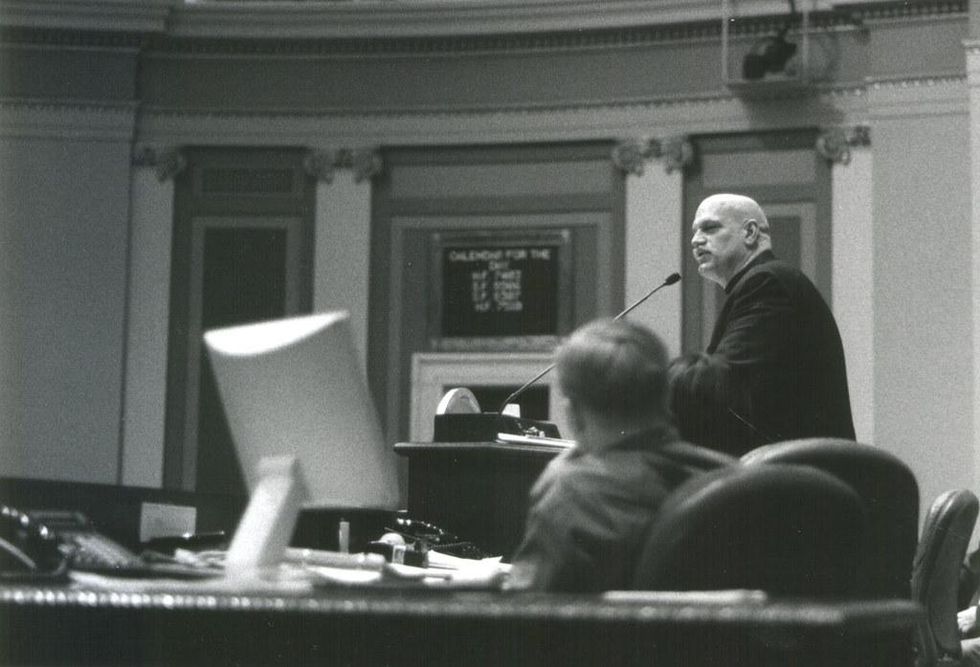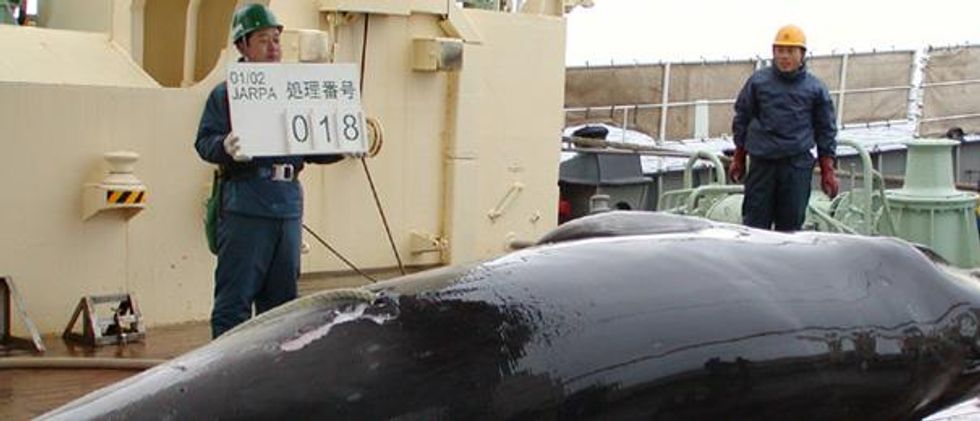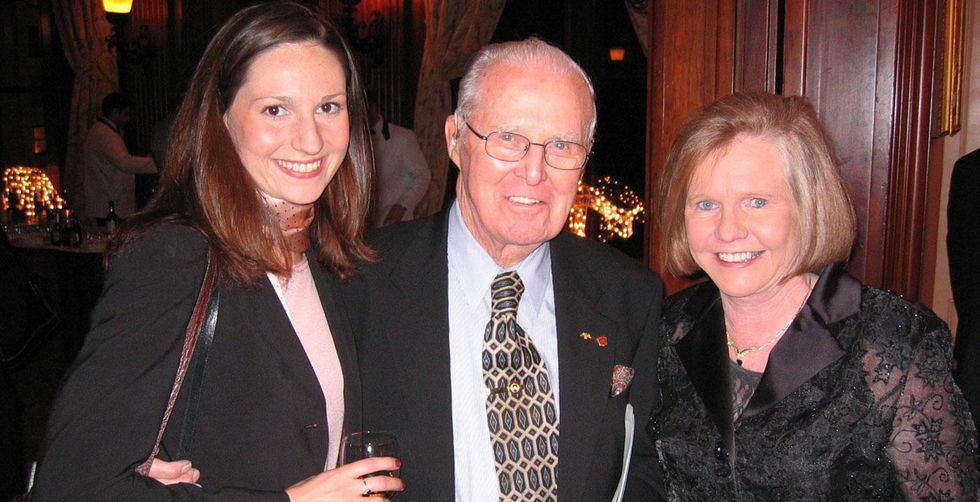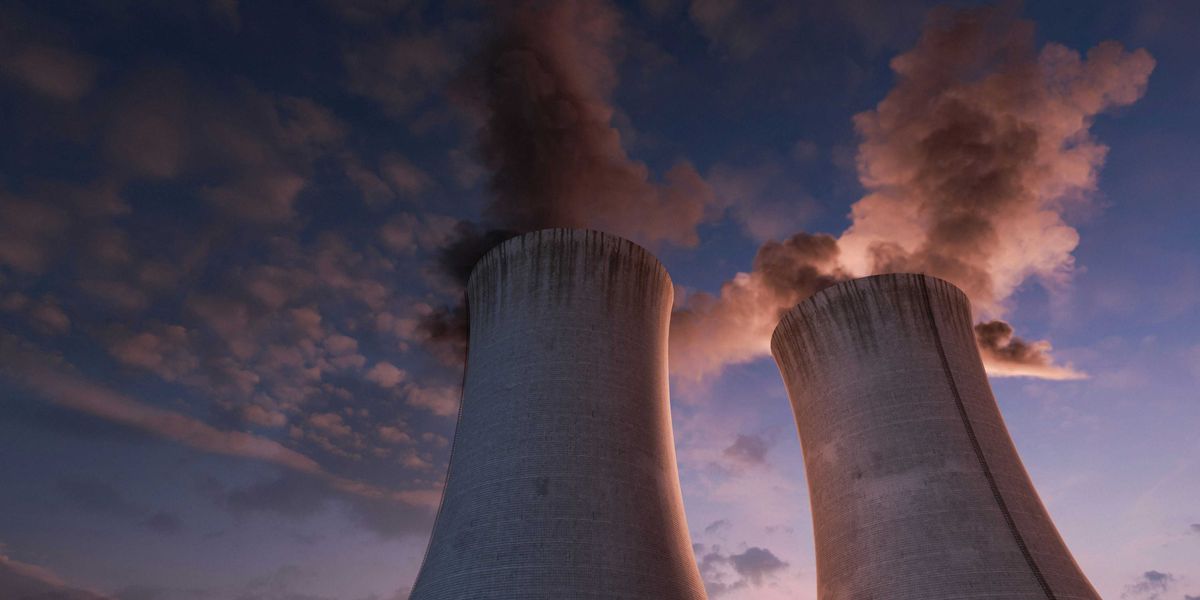Peter Dykstra: The Birth of Greenwashing
Five early efforts to make the ickiest environmental efforts look clean
They ranged from the staged athletics of professional wrestling to the surreal promises of religious figures offering a combo: Eternal happiness and earthly wealth.
On Sunday nights, I’d tune in to Rev. Ike, a preacher who used hypnotic tones to offer unseen wealth to those who sent a fat check to his Ellwood City, Pa. address in exchange for a prayer cloth. Testimonies from nouveau-wealthy prayer cloth owners sealed the deal for new recruits.
Later, I was transfixed by faith healer Ernest Angley, who brought hither the maimed, and the halt, and the blind (Luke 14:21) and seemed to cure them by sucking the Demon straight out of their foreheads with the palm of his hand.
Politics and Pro Wrestling

And the maudlin, bloody theatrics of TV wrestlers were just a variation on this. When wrestler Jesse “The Body” Ventura was elected Governor of Minnesota in 1999, it seemed to confirm that theatrics that played well in religion or athletics could play anywhere.
Climate denial and greenwashing
In the 1980’s and ‘90’s, the growing science around climate change and an abundance of other environmental issues created its own backlash. Those sowing doubt seemed to take their cues from the religious and athletic hucksters that fascinated me back in the day.
This week, I’ll pay some backhanded tribute to PR efforts behind what so many of us would consider to be environmentally odious work.
'Scientific' whaling exemption

Even an issue as widely supported as ending commercial whaling drew an opponent. Tele-Press Associates was a Manhattan-based PR firm with, for the most part, a single client.
They were the Western voice of the Japan whaling Association. Tele-Press was mostly a one-man show, a native New Yorker named Alan MacNow. He founded the agency in 1959, according to Sourcewatch, a website that researches industry PR efforts. The primary clients of Tele-Press were the Japan Whaling Association and the Japan Fisheries Association.
MacNow accused conservation groups of distorting information on whaling and using the issue purely for fundraising purposes. He recruited two U.S. Congressmen, Mervyn Dymally (D-CA) and Charles Rangel (D-NY) to accuse the groups of anti-Japanese racism. When the International Whaling Commission voted to end commercial whaling in 1986, he helped promote an escape clause by which whaling for “scientific research” could continue. No evidence of how the research was ever used emerged – except to set the quota for the next year’s research.
MacNow died in 2010. Tele-Press has been inactive since. But the “research” exemption lives on.American Council on Science and Health

According to its own website, “The Council was founded in 1978 by a group of scientists with a singular focus: to publicly support and utilize evidence-based science and medicine and to educate the public by debunking junk science and exaggerated health scares.”
The American Council on Science and Health has said its funding base includes minimal support from affected corporations, but the nonprofit Center for Media and Democracy found otherwise.
Six-figure gifts from the Koch-linked Donors Trust, from the conservative Lynne and Harry Bradley Foundation, Bristol-Myers Squibb Foundation, ExxonMobil and more helped power ACSH.
They were the go-to group of the 1990’s to criticize just about any study or regulatory move that called for restrictions on widely-used chemical or pesticide products. Founder Elizabeth Whelan, who called her opponents “toxic terrorists,” died in 2014, but ACSH is still active.
Kyoto Climate Accord
When the world came together in the mid-1990’s to build the Kyoto Climate Accord, the Global Climate Coalition brought industries together to oppose it.
According to the sleuths at DeSmog, oil giants like Royal Dutch Shell and Chevron; trade groups like the National Association of Manufacturers and the U.S. Chamber of Commerce; and Ford, Chrysler and General Motors came together to halt Kyoto and undercut the language of the UN’s early climate reports.
GCC reportedly spent $13 million on ads highlighting Kyoto’s weak spot: It required little of growing industrial giants like India and China, but much of the industrialized world. PR giants like Burson-Marsteller and E. Bruce Harrison added the cause. Harrison’s work dated back to 1962, when as a young PR exec at the Chemical Manufacturers Association, he led a personal attack campaign against Silent Spring author Rachel Carson.
The U.S. never joined Kyoto. Mission Accomplished, GCC disbanded in 2002.
Australia's Galileo Movement
Greenwash groups tend to be an American phenomenon, but there are exceptions. The Galileo Movement sprang fully formed in Australia in 2011, reportedly founded by two retirees who coordinated a national tour by the peerless peer Lord Monckton. Aussie coal baroness Gina Rinehart pitched in $500k for the tour.
After an initial flash in the pan, the Galileo Movement hasn’t moved much. Their last social media entries or page updates took place in 2018, but they should get some props for usurping the image of the much put-upon Galileo for their cause.
Touting CO2's benefits
Greening Earth Society was founded and funded by the Western Fuels Association, a trade group for Rocky Mountain coal mining firms. The Society issued a video that embraced debunked claims that the carbon dioxide we’re pumping into the atmosphere won’t be a problem. The Society is defunct, but “The Greening of Planet Earth” is still viewable on YouTube.
Next week, I’ll highlight five current greenwashers. Enjoy!!
Peter Dykstra is our weekend editor and columnist. His views do not necessarily represent those of Environmental Health News, The Daily Climate, or publisher Environmental Health Sciences.













